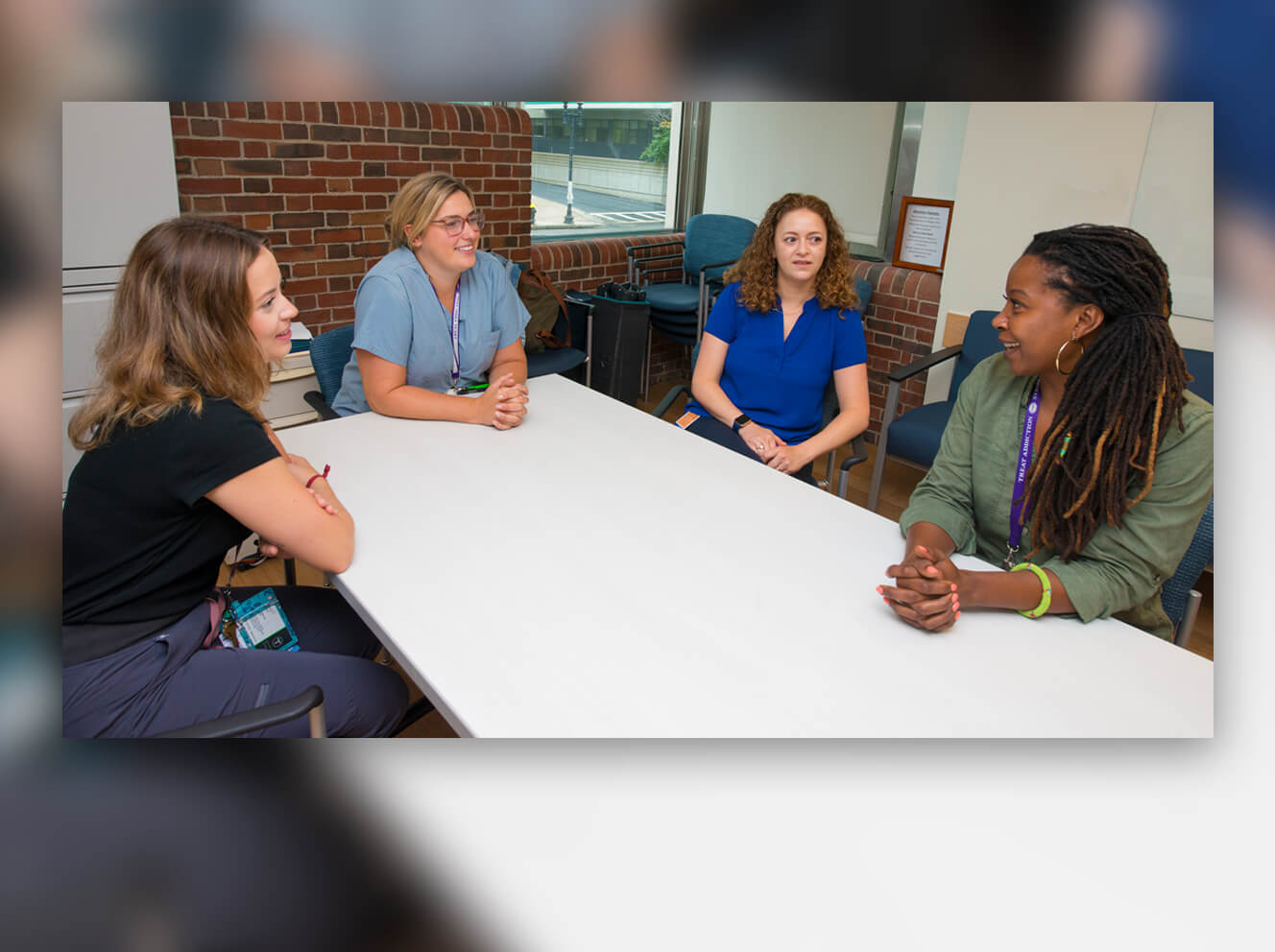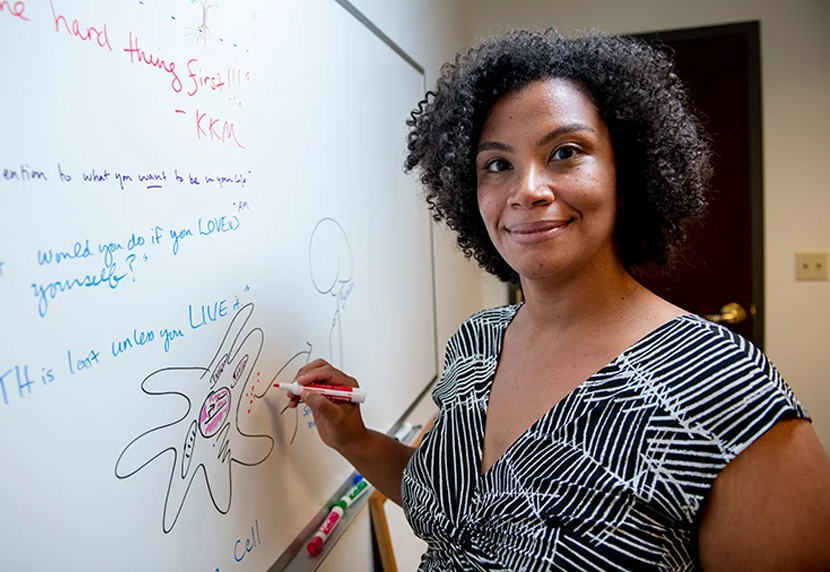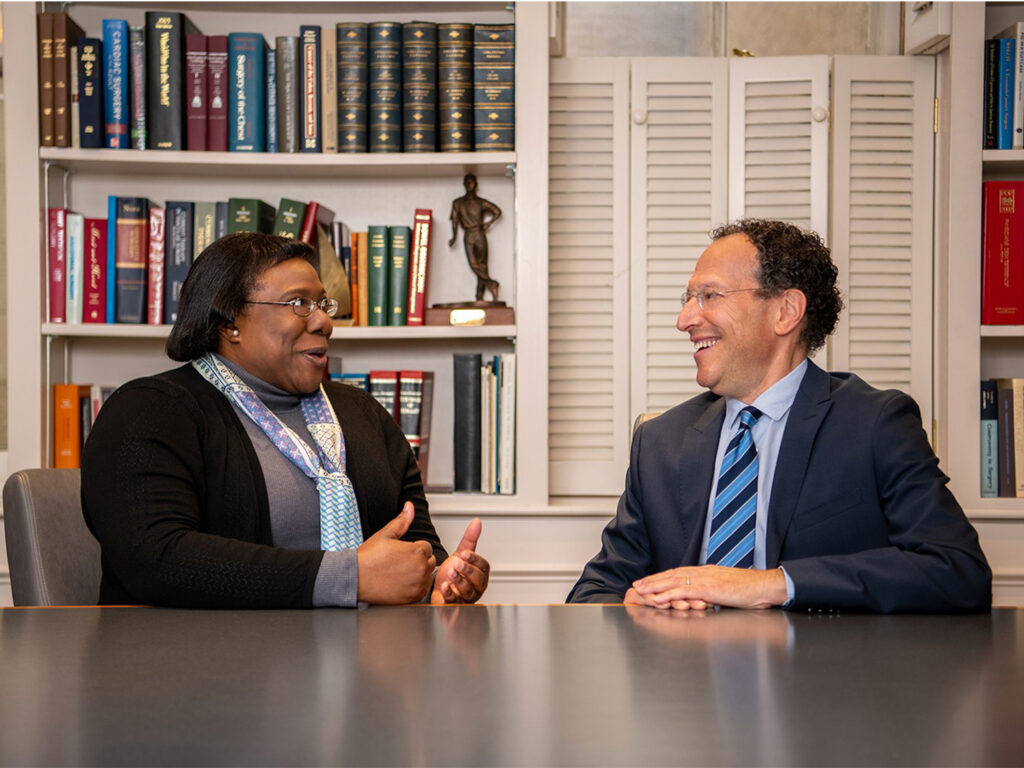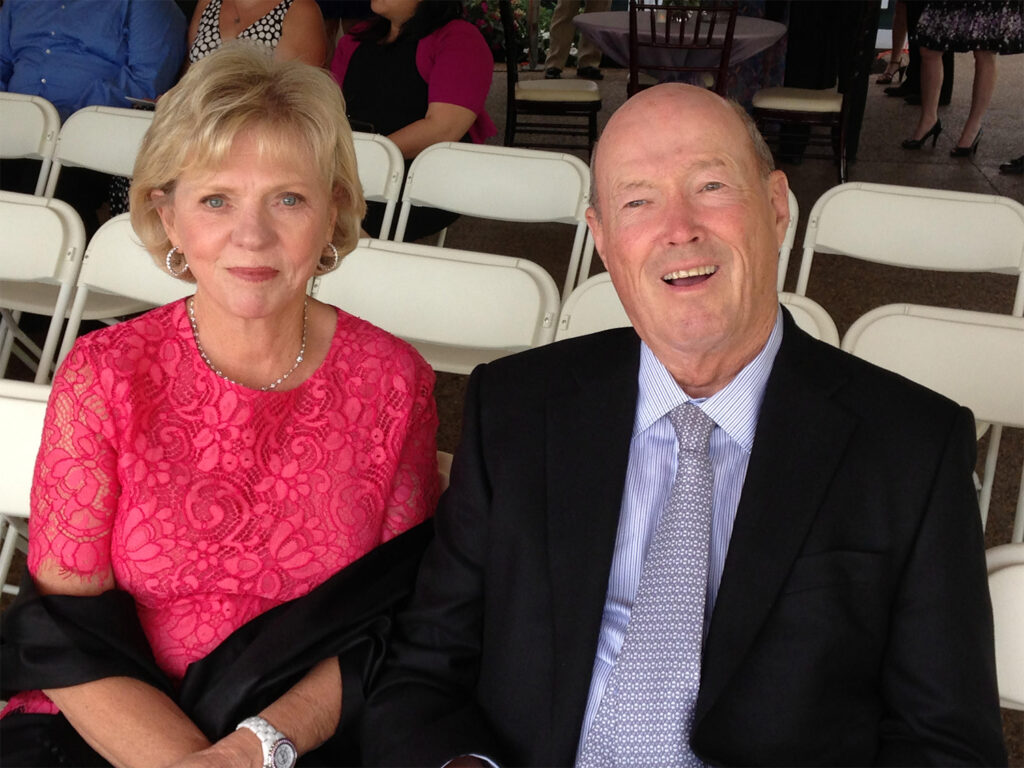When Felicia found out she was pregnant, she was homeless. She was struggling with stopping her substance use. Her partner had just died. But at a moment when she and her child were in critical need of support, she found a home at the HOPE Clinic (Harnessing support for Opioid and substance use disorders in Pregnancy and Early childhood) at Massachusetts General Hospital. The clinic, which is part of the larger Mass General Substance Use Disorder Initiative and celebrated its five-year anniversary this spring, provides care for pregnant people with substance use disorder and their infants from conception through early childhood.
“They became my second family,” says Felicia, who has been in recovery from her substance use disorder for three years and now works as a HOPE Clinic recovery coach. “I went from having no support to feeling like I had a whole community behind me. It was what I needed.”
At its core, the HOPE Clinic meets each pregnant person where they are in their substance use and partners with them around their own personal goals. That approach translates to high-touch, multi-disciplinary care. Clinicians trained in obstetrics, pediatrics, family medicine, substance use disorders, psychiatry, social work and peer recovery offer intensive support for their patients — to the tune of thousands of individual touch points as they navigate pregnancy, infancy and beyond.
“What gives HOPE its special sauce is the focus on caring about the human and family in front of you,” says Jessica Gray, MD, the medical director of the HOPE Clinic. “The team is beyond dedicated to doing this work and facing an uphill battle against all the social determinants of health and societal challenges that patients face. It’s hard, and I think it takes exceptional people to see the real harms and struggles that families face and figure out how to walk with them on their substance use recovery.”

A Safe Space for Struggling Families
The HOPE Clinic opened in April 2018 with a skeleton crew, providing two half days per week of wraparound care that depended on what patients needed that day. Thanks to support from federal and state grants and the generosity of the Berlin Family Foundation, helmed by foundation president Morea Cutler and her mother, Robin Berlin, the clinic identified and expanded essential services over the following five years. HOPE now has dedicated full-time social work, nursing, recovery coaching and administrative support working to help families outside of the day and a half of clinic sessions.
“When we think of the most vulnerable people in this country, that’s who the HOPE Clinic sees,” says Morea. “This group doesn’t get support otherwise and is constantly pushed to the side. This is a chance to keep these women and their babies together and thriving.”
“It feels like a real privilege to be let into people’s lives so intimately,” says Davida Schiff, MD, a Mass General pediatrician and researcher, co-founder of the HOPE clinic, and Director of Perinatal and Family-Based SUD Services. Dr. Schiff currently serves as primary pediatrician at the HOPE Clinic. “People trust us to come when they’re doing well or when they need help, and that’s one of the most special experiences as a clinician.”
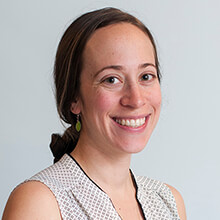
A Tale of Two Pregnancies
Felicia and Morea heard about the HOPE Clinic at similar points in life — when they were expecting their daughters — but in starkly different circumstances.
Felicia’s primary care doctor suggested she connect with the clinic given her struggles; after hearing from the team four times, she made the initial appointment and saw the team throughout her pregnancy.
Morea’s pregnancy coincided with the early days of the COVID-19 pandemic, and the ensuing shutdown gave her a window into just how isolating the experience of pregnancy can be. When her mother heard about the HOPE Clinic, its mission pulled at their heartstrings.
“Having that personal experience really drew us to the HOPE Clinic,” says Morea, who now has two children. “It reminded me that pregnancy and the first year or two of an infant’s life are very stressful for those of us with a lot of privilege and protective factors working in our favor. When we thought of this population of women who don’t have natural supports, who are facing risk factors and are dealing with substance use, we wanted to do our part to help.”
“The joy of welcoming their babies into the world and supporting their growth and attachment is second to none. That’s why I’m here — it’s for those moments of connection and growth. I can’t imagine myself anywhere else.”
For Felicia, that help included both medical treatment and advocacy resources as she met with the Massachusetts Department of Children and Families. She gave birth to a healthy baby girl, and the family — Felicia and her 8-year-old and 2.5-year-old daughters — now have their own home north of Boston.
“The HOPE Clinic is a judgement-free zone, which is so hard to find — even in the recovery community,” Felicia says. “That’s what attracted me to it, and it’s what attracts a lot of women to the clinic.”
Shining a Light Toward Brighter Futures
In her role at the HOPE Clinic, Felicia supports patients and shares her experience. “I’m going to use my background the best way I can,” she says of being a recovery coach. “HOPE has been a huge, impactful part of my life, and I want other people to know about it.”
Over the next five to 10 years, the HOPE Clinic team plans to explore novel ways to serve patients, along with assessing and ensuring family safety and well-being. To achieve those goals, Dr. Schiff has built a research arm called PRISM (Perinatal Substance Use Research and Advocacy at Mass General) to develop, implement and evaluate evidence-based programs and policies that advance the care of families impacted by substance use disorder. With that research, community partnerships with organizations like Project NESST, and continuing philanthropic support, the HOPE Clinic is on its way to becoming a national leader in evidence-based patient support for pregnant and postpartum people with substance use disorder.
For the team, their daily focus remains on the families they serve.
“We are so privileged to meet women at all stages of use and recovery, all with a shared goal of health,” Dr. Gray says. “We’re coming alongside them on their recovery journey, helping them work toward their wellness goals, and building their confidence and resilience as they transition into motherhood in whatever shape that looks like for the individual. The joy of welcoming their babies into the world and supporting their growth and attachment is second to none. That’s why I’m here — it’s for those moments of connection and growth. I can’t imagine myself anywhere else.”
To learn more about the HOPE Clinic, please contact us.
